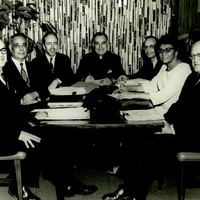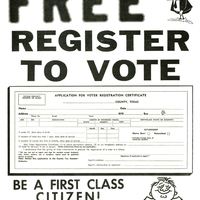Ambassador
Dr. Garcia served as a spokesman for Mexican Americans at the national and international level. His reputation and ability to get people to the polls made him a powerful ally for politicians, many of whom sought his endorsement and his advice. He rose to national prominence, but his dedication to his community never wavered. He used his prestige as a platform to help publicize and address the challenges facing Mexican Americans nationwide.
Leading Political Campaigns
By 1960, Dr. Garcia had proven his ability to get voters to the polls. He began to focus on the other side of the political equation—electing candidates who promoted civil rights. He coordinated Mexican American support for several presidential candidates, including John F. Kennedy and Lyndon B. Johnson. By creating strong coalitions, Dr. Garcia helped to ensure that politicians fulfilled their campaign promises to Latino voters.
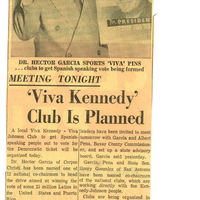
'Viva Kennedy' Club is Planned
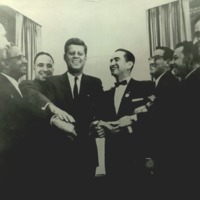
John F. Kennedy with Viva Kennedy Club Leaders
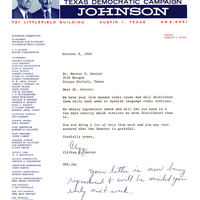
Letter from Clifton C. Carter to Dr. Hector P. Garcia
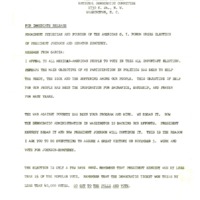
Statement, Viva Johnson Clubs
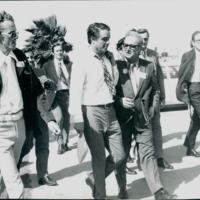
Dr. Hector P. Garcia with Sargent Shriver
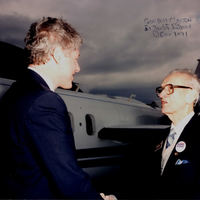
Dr. Hector P. Garcia with Bill Clinton
Advising Presidents
Many U.S. presidents looked to Dr. Garcia as a trusted advisor and welcomed his viewpoints and advice. He developed especially close relationships with John F. Kennedy and Lyndon B. Johnson, with whom he shared his vision of equality for Mexican Americans. This position of trust led to several high-profile appointments that gave Dr. Garcia the opportunity to spread his message even further.
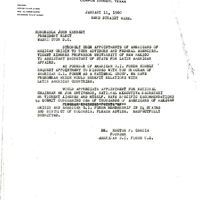
Letter from Dr. Hector P. Garcia to President-Elect John F. Kennedy
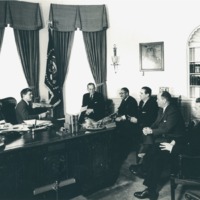
Members of the West Indies Delegation Meet with President John F. Kennedy
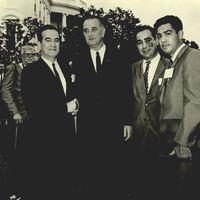
Dr. Hector P. Garcia with President Lyndon B. Johnson
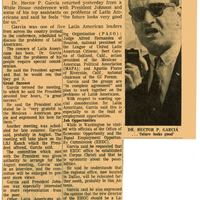
Dr. Garcia Pleased with LBJ Meeting
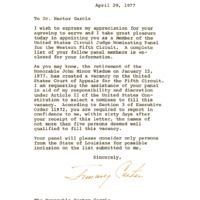
Letter from President Jimmy Carter to Dr. Hector P. Garcia
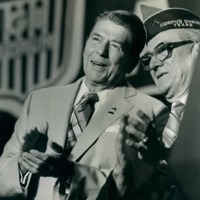
Dr. Hector P. Garcia with President Ronald Reagan
Building Political Coalitions
The success of Viva Kennedy clubs gave rise to a new organization, the Political Association of Spanish-Speaking Organizations (PASO). Dr. Garcia served as PASO’s first chairman. The organization worked to leverage Latino political power. Its first major success came in 1963, as part of a political coalition that helped Mexican American candidates win all five city council seats in Crystal City, Texas.
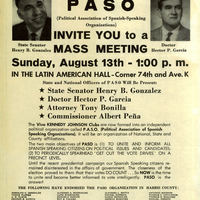
Mass Meeting Flyer, PASO of Harris County
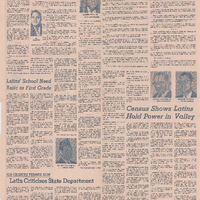
Texas' Latins Bid for Better Lot with Ballots
Representing His Country
In 1967 President Lyndon B. Johnson named Dr. Garcia an alternate delegate to the United Nations. On October 26, 1967, Dr. Garcia delivered a statement in Spanish before the UN General Assembly. The historic address marked the first time an American representative addressed the United Nations in a language other than English, and generated goodwill among delegates from Latin American countries.
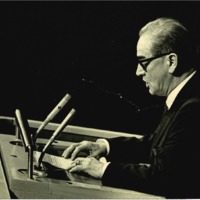
Dr. Hector P. Garcia Addressing the UN General Assembly
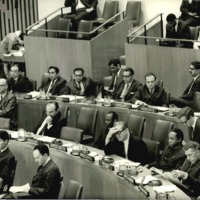
Dr. Hector P. Garcia at the United Nations
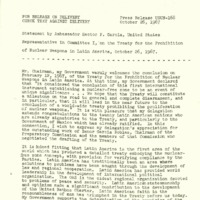
Statement by Ambassador Hector P. Garcia, United States Representative in Committee I, on the Treaty for the Prohibition of Nuclear Weapons in Latin America
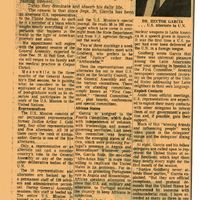
World Issues Close to Garcia
Informing Policy
The United Nations thrust Dr. Garcia into the realm of international relations, but he remained primarily concerned with problems that persisted at home. In 1968 he was appointed to the United States Commission on Civil Rights (USCCR). He also became involved in the Equal Employment Opportunity Commission (EEOC), and helped AGIF leader Vicente Ximenes become the EEOC’s commissioner.
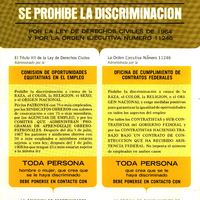
Igualdad de Oportunidad de Empleo [Equal Employment Opportunity] Flyer, EEOC
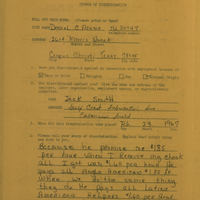
Charge of Discrimination, EEOC
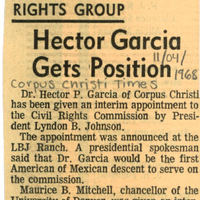
Hector Garcia Gets Position
